Solidarity in action: How racialised LGBTI activists are leading the way
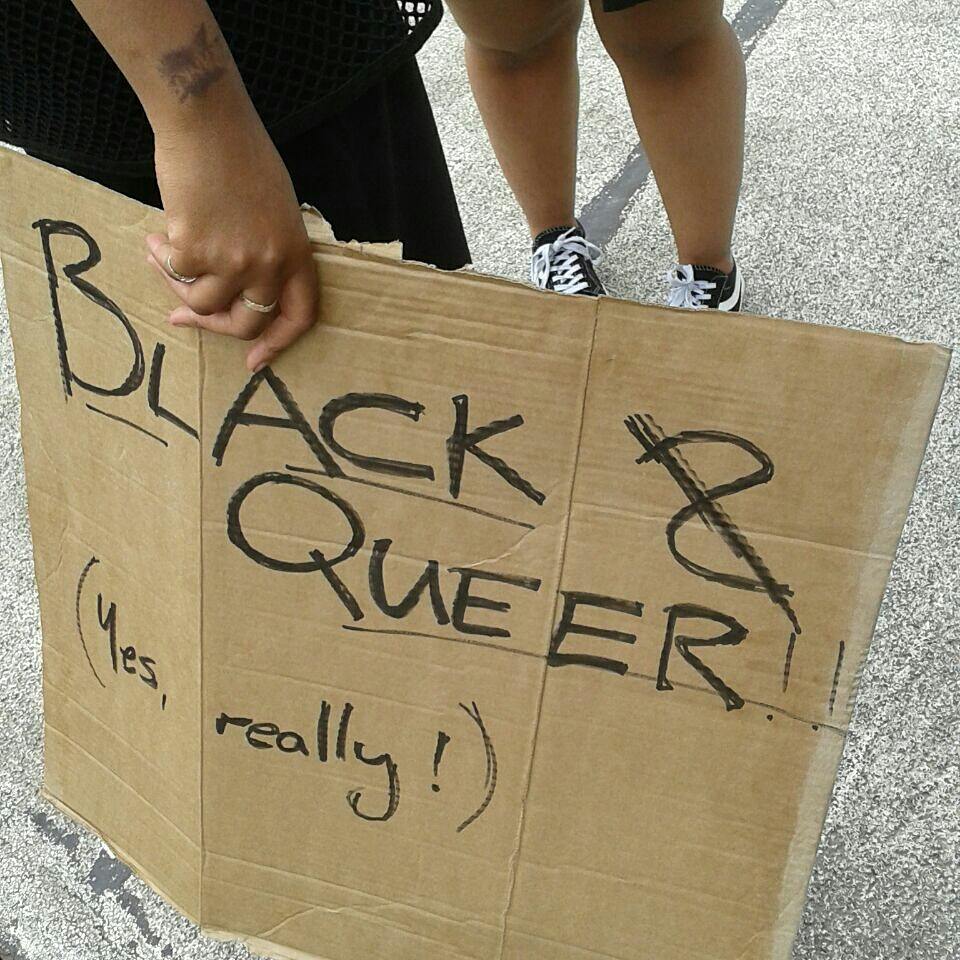
Across Europe, racialised LGBTI activists are redefining solidarity, not as a token gesture, but as a lifeline, a political act, and a practice of care. From fighting deportations to challenging power structures, their work offers a vision for a more just and transformative LGBTI movement.
“Solidarity is a technology of tenderness. It’s love. It’s protection. It’s grace. First to ourselves. Because we, as human beings, we always share what we are filled with.” (Faris Cuchi Gezahegn, Afro Rainbow Austria and House of Guramayle)
“To be radical, [solidarity as politics of affinity] has to be structural. That means dismantling colonisation, racism, LGBTI-phobia. It’s about redistributing discourse, resources, power.”(Pancho Godoy Vega, Colectivo Migrantes Transgresorxs)
With this new blog series, we’re sharing insights from the work of LGBTI organisations tackling injustice, racism, and the unique challenges faced by racialised LGBTI communities in Europe. We hope their stories and practices will inspire and resonate. We believe that solutions and approaches that include a few will pave the way and point to the solutions for many. You can read the previous blog in the series here.
For this blog, we’re shifting our focus to solidarity. What does it mean to racialised LGBTI communities? How is it understood, lived, and practised? And what would it mean for the broader LGBTI movement to engage in solidarity in a truly radical and transformative way?
To explore this, we spoke with three queer racialised groups: Queerstion Media (Sweden), Afro Rainbow Austria, and Migrantes Transgresorxs (Spain). Their stories are both deeply personal yet undeniably political.
Solidarity as a Lifeline
“I am a product of solidarity,” says Purity K Tumukwasibwe, Executive Director of Queerstion Media. “I became an activist by default. I was advocating for myself because otherwise my rights were just completely taken away from me.” From surviving police violence in Uganda and Kenya to being supported by a network of queer activists and allies in Europe, Purity’s journey is an example of how solidarity can be a lifeline, a practice that literally saves lives.
She shared a recent story of advocating for a fellow trans refugee in Sweden who was facing deportation to Uganda. “Everybody said that if the migration services decided on that, then it was over. But we said, ‘Let’s try’. I was so impressed by how everybody came on board.” Through a petition, media outreach, and institutional pressure, united in solidarity, they changed the outcome. The woman was granted residence in Sweden and permitted to stay. “When I see these members we support, who we come together for, I feel like I have contributed to a better world,” says Purity.
A Technology of Tenderness
For Faris Cuchi Gezahegn, member of Afro Rainbow Austria and co-founder of House of Guramayle, solidarity is both a political act and a spiritual practice. “To exist in this world as the person that I am, I am the manifestation of solidarity,” they say. Faris speaks of the collective effort that ensured their survival as a queer Ethiopian activist forced to flee, and how those acts of support were never transactional, but rooted in mutual care.
For Faris, solidarity isn’t about identity politics or rigid definitions. “It’s a technology of tenderness,” they explain. “It’s love. It’s protection. It’s grace. First to ourselves. Because we, as human beings. We always share what we are filled with.”
Yet, Faris also sees an urgent need for transformation within the LGBTI movement itself. “We harm one another. We are often encircled by the violence projected onto us, and we replicate it – in our accountability practices, in our scarcity mindsets, in how we treat one another.” Their call is for radical healing: to resist punitive impulses and lead with softness, honesty, and vulnerability.
Beyond Solidarity Towards Structural Change
The collective Migrantes Transgresorxs challenge the word ‘solidarity’. “We prefer to talk about the politics of affinity,” says Alex Aguirre Sánchez. “Solidarity carries a violent historical weight. It comes from religious charity, and religion has been violent for us.”
Instead, they emphasise ancestral bonds and community-to-community alliances. “We stay together, and together we are stronger,” says Kimy/Leticia Rojas. “It’s about sharing food, music, lived experience, and ancestral knowledge.”
Pancho Godoy Vega adds: “To be radical, it has to be structural. That means dismantling colonisation, racism, LGBTI-phobia. It’s about redistributing discourse, resources, power.” The group, formed in Madrid in 2009, has always intertwined the personal and political – fighting for trans migrants, critiquing whiteness in LGBTI spaces, building alliances from the bottom up.
All the activists featured in today’s blog share this in common: they call for a solidarity that is not superficial or symbolic, but material, embodied and rooted in justice. It means funding grassroots work. Sharing platforms. Redistributing power. Above all, it means healing.
As Purity puts it: “There is always going to be two sides of that coin, those with resources, and those at the margins shouting that we are struggling. Bridging that gap means planning together. It means putting grassroots like ours on the agenda.”
How BIPOC queer activists are using artivism as resistance
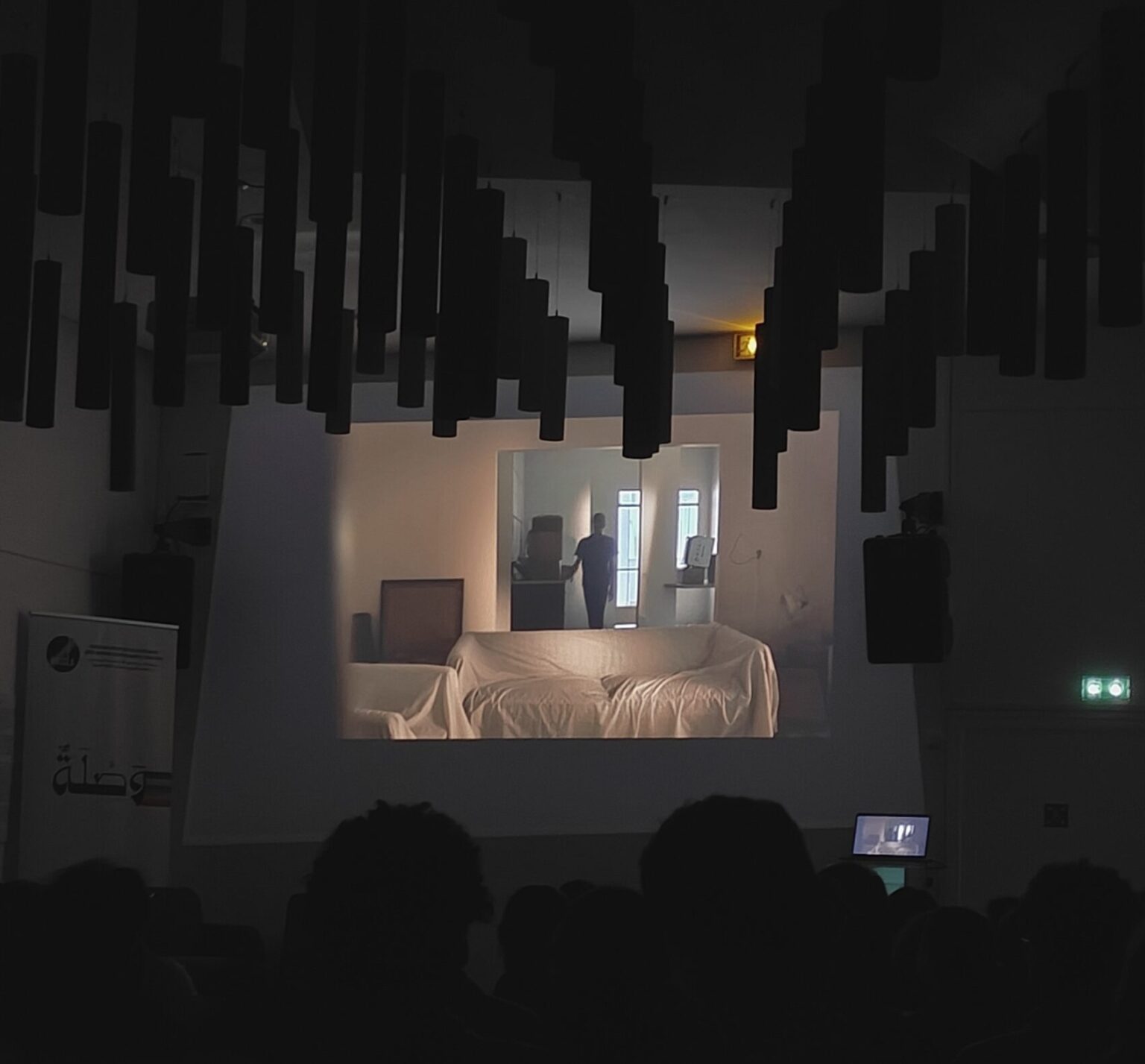
Art has always been a powerful tool of resistance, allowing the oppressed to share their truths and experiences. For many Black, Indigenous, or People of Colour (BIPOC1) LGBTI activists, it is more than expression—it’s a survival tool, a way to build community, a political statement, and a means to reclaim joy.
With this new blog series, we’re sharing insights from the work of LGBTI organisations tackling injustice, racism, and the unique challenges faced by racialised LGBTI communities in Europe. We hope their stories and practices will inspire and resonate. We believe that solutions and approaches that include a few will pave the way and point to the solutions for many. You can read the previous blog in the series here.
Across Europe, LGBTI collectives are harnessing film, music, poetry, and performance to tell their stories, connect with others, and challenge dominant narratives. In today’s blog, we explore how four different racialised queer groups use art in their activism.
Wassla Ciné Queer: Film as a lifeline
For Wassla, a queer cultural organisation based in Paris that works with migrants, film is more than entertainment – it is a lifeline. Their initiative, Ciné Queer, curates short and feature-length movies directed by Arab filmmakers that explore LGBTQIA+ experiences in Arabic-speaking communities. More than just screenings, these events spark critical conversations. Often followed by discussions with directors, the gatherings create a space where people can process what they see on screen, debate social issues, and reflect on their own realities.
At Wassla, there is no distinction between volunteers and participants; everyone plays a role in shaping the community. Many of their screenings feature works by their own members, amplifying voices that might otherwise remain unheard. With audiences sometimes reaching 80 people or more, Ciné Queer combats isolation and fosters solidarity in a safe and empowering space. For Wassla, film is not just about representation, it is about connection, healing, and breaking the silence.
Sadiqa and LIMBO queer exilic narratives: Music as a battle cry
“I am a reality, not an illusion.” These words, from Sadiqa’s song The Voice of the Queer, embody the defiant spirit of many BIPOC queer artists who refuse to be erased. Sadiqa was part of Art for Change, an initiative that examined art as a tool for solidarity and engaged scholarship. During the COVID-19 pandemic, Art for Change brought together queer refugee artists, offering a space to create and share music, poetry, film, and design.
That work continues through LIMBO queer exilic narratives, a platform for queer refugees in the Netherlands to tell their stories through art, to challenge the laws and structures that criminalise their existence, and to carve out spaces of belonging. Sadiqa’s music does not ask for permission; it demands recognition. Their lyrics are a protest against laws such as Article 489 of the moroccan law, which criminalises the sexuality of queer people, and a call out to all systems of oppression that seek to control and suppress marginalised communities:
“The voice of the queer is everywhere, calling against oppression… now we are all aware of the system’s malfunctions”
صوت الكوير في كل مكان، ينادي ضد الطغيان… مازال الحق يبان، و كلشي يرجع مزيان
Rainbow Mind UK: Art as radical self-care
For Rainbow Mind UK, creativity is a crucial part of their radical self-care approach. Working with LGBTI people of colour and refugee communities in the UK, they realised that traditional self-care practices often required participants to re-live painful experiences. Instead, they turned to art and music as a means of engagement, connection, and healing.
One of their most popular practices is the Queer Pencil Disco, where participants use drawing as a form of self-expression, and another involves recalling empowering song lyrics when words are hard to find. For a group of LGBTQ+ refugees, ‘Flowers’ by Miley Cyrus became an anthem of resilience. These practices offer creative expression and make self-care accessible and joyful. Rainbow Mind UK uses art to help people take control of their stories without re-experiencing trauma.
Break Isolation Group: Slam poetry as protest
For Break Isolation Group, spoken word and slam poetry are forms of protest, catharsis, and survival. Many members are queer racialised asylum seekers and refugees who face state repression, deportation threats, and systemic silencing in Germany.
Ann and Rose from Break Isolation Group explain that poetry provides them with a platform to express anger, tell their stories, and build community when traditional political spaces are closed to them.
“We are not able to speak openly in many spaces anymore,” Ann explains. “So now, we turn to slam poetry. Art allows us to purge, to bring experiences to life in a way that just talking about them doesn’t.”
For Break Isolation Group, redefining what counts as ‘art’ is part of their activism. Rose points out that in many BIPOC cultures, storytelling has always been woven into song and dance, but Western frameworks often fail to recognise these as legitimate art forms. “Our ancestors sent messages through music; this is nothing new.” Through their work, Break Isolation Group challenges Eurocentric definitions of art and reclaims creative expression on their own terms.
New funding
ILGA-Europe continues its commitment to providing funds and support for this part of LGBTI movement that addresses intersectional impacts of injustice, racialisation, racism and supremacy. On 30 January 2025, we launched a new call for proposals to support European groups working for and with racialised LGBTI communities. This is the third cycle of this programme. Apply by 30 March 2025, 23.59 CET.
- BIPOC is one of many abbreviations that our partner organisations use to self-identify the racialised communities they belong to. We use it here while acknowledging that there are other terms that might be more apt in different contexts by various groups, such as BAME (Black, Asian, and minority ethnic), BAPOC (Black, Asian and People of Colour), LGBTQI+ individuals of African descent, Arab queers from SWANA region (Southwest Asian and North African region) to name a few that are used by organisations we work with. ↩︎
Meeting the realities faced by racialised LGBTI asylum seekers
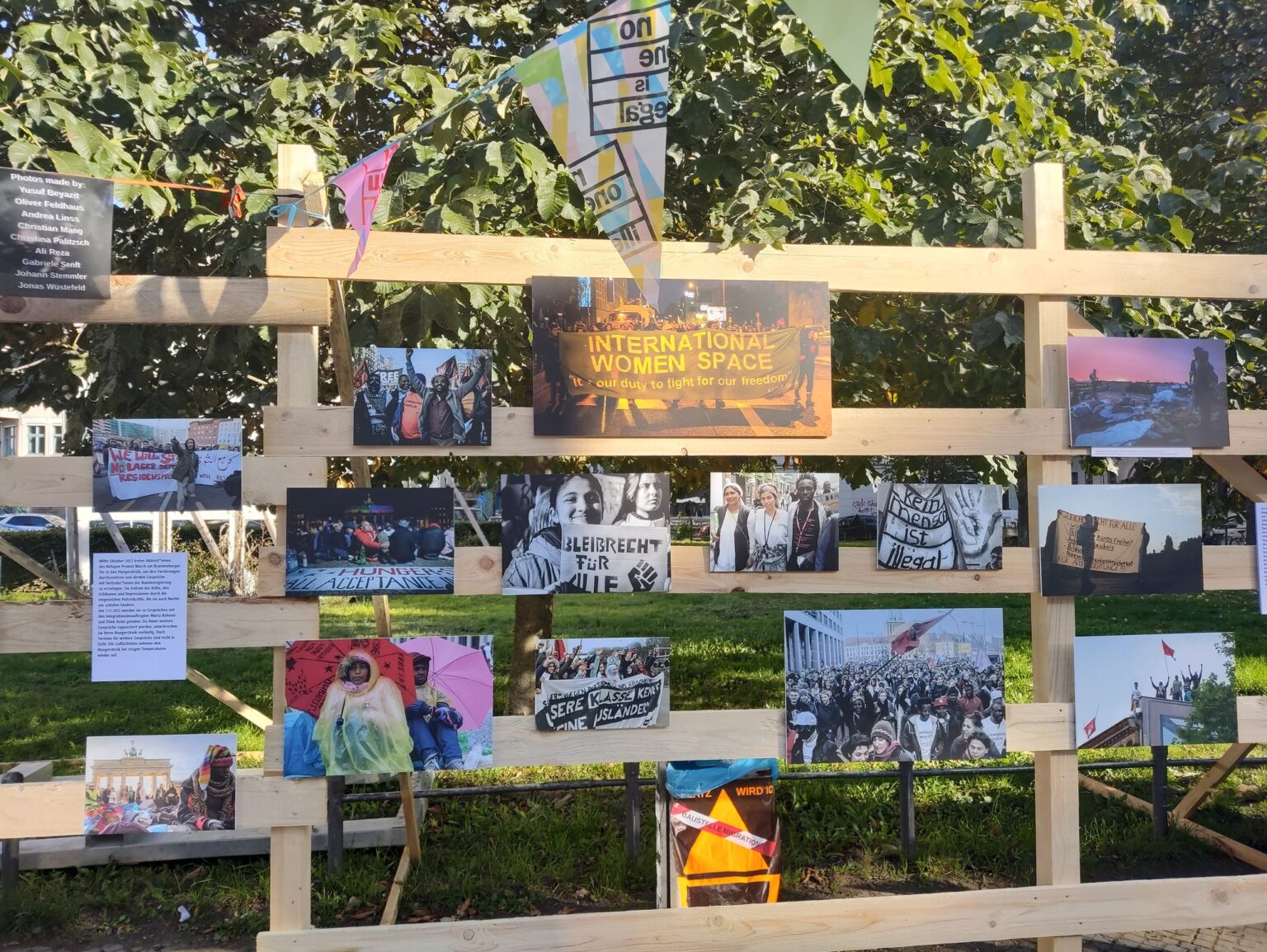
In the first of a new series of blogs, highlighting the work of LGBT organisations tackling injustice, racism, and discrimination, we explore how The Break Isolation Group in germany supports racialised LGBTI asylum seekers.
“No one can tell you better how to navigate the system than someone who has lived through it. We’re tired of people deciding for us or speaking on our behalf.“
In this series, we’re sharing insights from work done by LGBTI organisations who address intersectional impacts of injustice, racialisation, racism and supremacy, and specific harms affecting the lives of racialised LGBTI communities across Europe. We hope their stories and practices will inspire and resonate across communities. We believe that solutions and approaches that include a few will pave the way and point to the solutions for many.
The Break Isolation Group, part of the International Women* Space (IWS), provides a compelling example of how grassroots, refugee-led initiatives can address the systemic isolation and oppression faced by asylum seekers in Germany. The group operates alongside Resilient Voices, a working group focusing specifically on the needs of queer refugees. Together, they tackle the overlapping and distinct challenges faced by marginalised communities in the asylum process.
Understanding the system: isolation as policy
The asylum system in Germany like in many other countries across Europe, as described by Ann, a member of IWS, “thrives on isolation.” Refugees are often placed in remote, restrictive accommodation centres, known as lagers1, which are specifically designed to curtail mobility and exacerbate social exclusion. Ann reflects on the systemic dehumanisation inherent in this setup: “The system seems to want us to be content with the bare minimum, to accept being treated as less than human.”
For queer asylum seekers, the challenges multiply. Ann highlights that the asylum process burdens LGBTI people with proving their sexuality in invasive and humiliating ways: “Just saying you identify as queer isn’t enough—you’re expected to provide proof, though no one tells you what that proof looks like.” Shared accommodations expose them to further risks. Rose, another member of IWS, points out, “Homophobia doesn’t disappear when people leave their countries. You’re often housed with people from the same communities, who perpetuate the same biases and violence.”
Peer-to-peer support as a cornerstone of resilience
Against this backdrop, Break Isolation Group has built its work on peer-to-peer support. Ann emphasises the approach’s significance: “No one can tell you better how to navigate the system than someone who has lived through it. We’re tired of people deciding for us or speaking on our behalf.”
Their monthly visits to lagers allow them to connect directly with asylum seekers, but discretion is key to ensuring safety. “We don’t loudly announce that we’re queer representatives,” Rose explains. “Instead, we create safe ways for people to connect with us—through WhatsApp groups or anonymous info lines funded by collaborators.”
These efforts help asylum seekers feel less isolated in a system designed to isolate. “Sometimes, just seeing a familiar face—someone who looks like you and has been through the same thing—can be transformative,” says Ann.
Bridging isolation through community building
Break Isolation Group also focuses on fostering community. Their strategies range from storytelling and shared meals to more structured activities like legal workshops. Rose shares an example: “The Ubuntu Kitchen brings women together to cook and share meals. Food is a powerful way to build trust and connection.”
Annual retreats offer a space for asylum seekers to step away from the daily struggles of the asylum system. These events combine moments of rest and healing with workshops and advocacy training, helping participants recharge and develop skills for navigating the system and organising collectively.
From survival to advocacy
While much of their work addresses immediate needs, Break Isolation Group also aims to challenge the systemic structures perpetuating these challenges. They advocate for the abolition of lagers, the right to work and study, and freedom of movement. “The asylum system isn’t designed to support us—it’s a hotbed of oppression,” Ann explains. “We need to dismantle these systems and replace them with ones that prioritise dignity and autonomy.”
The group is also campaigning against the introduction of payment cards (Bezahlkarte) for asylum seekers, a measure resulting from the revision of the Asylum Seekers’ Benefits Act. These cards limit and control how asylum seekers can spend their financial support, preventing them from withdrawing cash and restricting where and on what they can spend money. “This system dehumanises us by taking away our ability to make basic choices,” Rose says. “It’s a regression to policies that were already deemed harmful a decade ago, when a similar system of vouchers was in place.”
Another critical area of their advocacy is recognising climate refugees. Rose highlights the gap in current asylum frameworks: “The system only seems to understand migration as a result of war, but climate change is forcing millions to move, and we need policies that acknowledge that.”
Lessons for the wider movement
Break Isolation Group is a grassroots, refugee-led initiative that addresses systemic injustice. Their work demonstrates that those most affected by these systems are best placed to identify solutions and changes that need to come about. As Ann says, “We are not just survivors of these systems—we are experts in how to dismantle them.”
Group’s focus on peer-to-peer support and community-building, the intrinsic intersectionality of their work and the bedrock of their advocacy efforts being around basic human rights provide valuable insights for broader movements. “When we focus on the most marginalised, we create solutions that benefit everyone,” Rose asserts.
The group’s work challenges us to ask: how can we listen to and amplify the voices of those most affected? How can we build movements that prioritise both immediate care and long-term transformation? Where our work could lead us when we put basic human rights, like freedom of movement, or intersectionality, like racial and climate justice, at its forefront?
New funding
ILGA-Europe continues its commitment to providing funds and support for this part of LGBTI movement that addresses intersectional impacts of injustice, racialisation, racism and supremacy. On 30 January 2025, we launched a new call for proposals to support European groups working for and with racialised LGBTI communities. This is the third cycle of this programme. Apply by 30 March 2025, 23.59 CET.
- Here and throughout the blog, we use “lager” as a reference to refugee accommodation centres. This term is strategically chosen by activists, including Break Isolation Group, to describe the isolating nature of these guarded buildings and complexes, which are typically located on the outskirts of towns, disconnected from communities, and impose curfews and visitor restrictions. Activists reject the official term “Heim” (a German word for home) because it sugarcoats the dehumanising character and historical context of this form of accommodation.
↩︎
Remarkable and resilient Prides across Europe
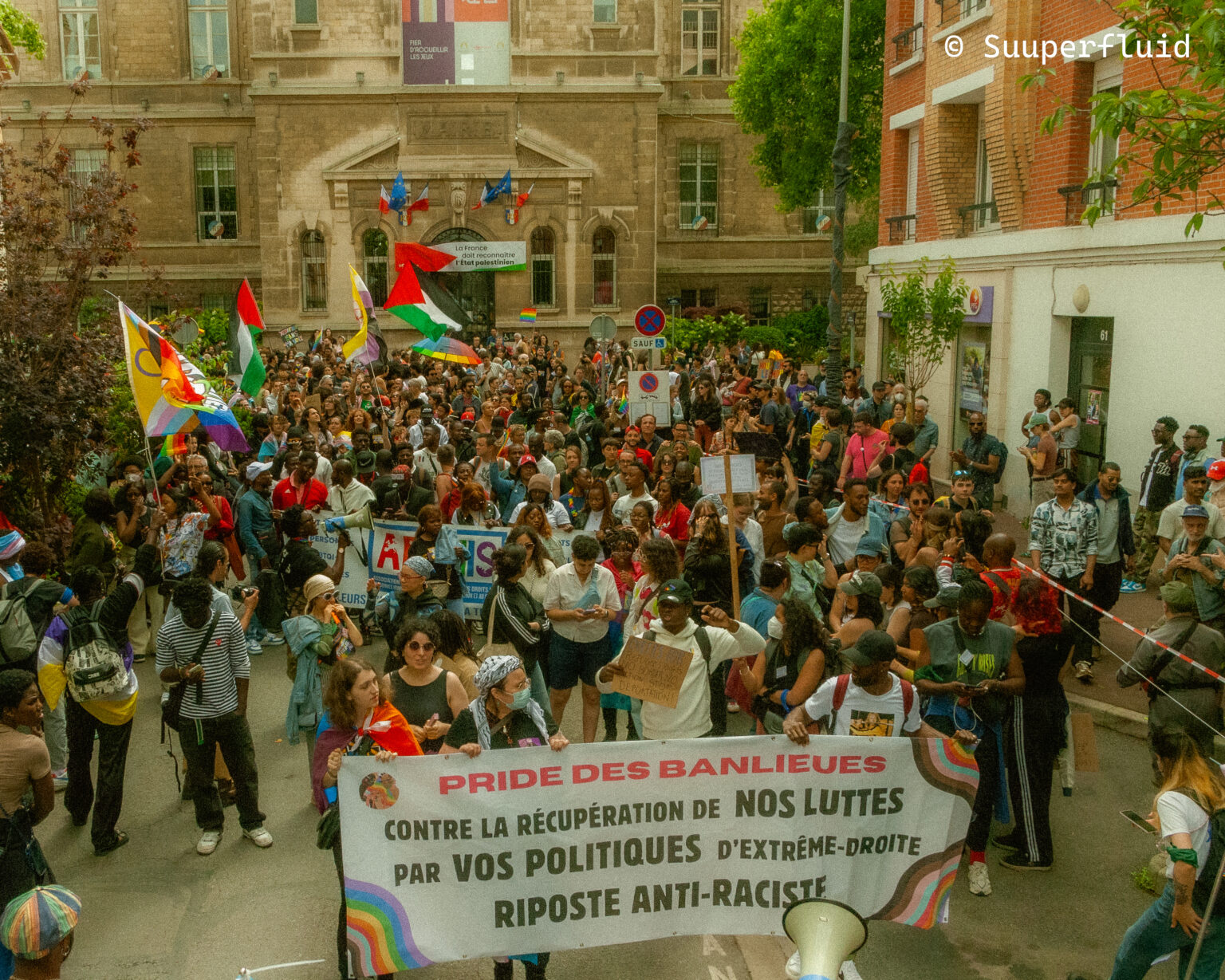
Amid political turmoil, war, social issues and cultural changes, Pride celebrations in Europe continue to demonstrate the resilience and determination of LGBTI communities
Today, on the eve of EuroPride in Thessaloniki, we are highlighting a number of significant Pride events on the continent, and one clear message shines through: LGBTI people are persisting in asserting their right to assemble and freely express themselves, thereby firmly establishing their presence in society. Pride events not only celebrate identity and diversity but also serve as critical platforms for political engagement. They amplify the voices of LGBTI people across Europe, who continue to push boundaries and demand their rightful place in society. Here are just a few of the thousands that have and will happen across Europe this year, in places where challenges are acute.
Kyiv Pride, Ukraine
Kyiv Pride 2024, on June 16, took place amidst challenging circumstances, reflecting the determination of Ukraine’s LGBTI community. Despite facing a cap on participation and heightened security measures, over 500 people marched through the streets of the capital to advocate for partnership recognition and protections against hate crimes. The event occurred against a backdrop of ongoing war, underscoring the urgent need for legislative reforms to safeguard LGBTI rights in Ukraine. Despite tensions and counter-protests, Kyiv Pride 2024 stood as a powerful assertion of the community’s right to freedom of assembly and expression.
“We took only a few steps, we made this painful compromise for the sake of safety and in order to revive the tradition and make a powerful and open Kyiv Pride March next year.” – Anna Sharygina, lead organiser of KyivPride.
La Pride des Banlieues (The Pride of the Suburbs), La Courneuve, France
La Pride des Banlieues happened in La Courneuve on June 22, representing LGBTI people from French working-class areas, many of whom are racialised. The group has been organising the Pride for several years in Saint-Denis. This year, however, the municipalities denied permission to march in Saint-Denis because of preparations for the Olympic Games in the city. Due to a last-minute relocation from its original venue and losing support from a municipality that had previously been an ally of past La Pride des Banlieues marches, the event took place in another suburb of Paris with less resources for security and less time to figure out new support infrastructure.
It was important that La Pride des Banlieues took place this year as the far-right opposition has been gaining more traction in France, getting more intense in their actions against LGBTI communities, with racialised LGBTI communities particularly facing multiple situations of discrimination and harassment. In their political message at La Pride des Banlieues, the organisers and their constituents condemned rising hate speech, discriminatory immigration policies, and institutional racism, aiming to resist far-right co-optation and mobilise solidarity against oppression of ethnic minorities and LGBTI communities in the suburbs.
“The fight against the far-right cannot be reduced to a universal fight, we must recognise the multiple and interconnected realities of oppression.” – La Pride des Banlieues organisers.
Trans Pride Istanbul, Turkey
Trans Pride Istanbul on Sunday June 23 was marked by decentralised actions across the city. Under the theme “Perpetrator State,” participants asserted trans visibility and existence, refusing to be silenced despite bans and oppression. Rather than a centralised march, activists mounted a number of smaller, unannounced activities like hanging trans flags, projecting messages across city landmarks and reading of a statement in front of Pride attendees. The event unfolded amidst stringent security measures, including metro station closures and a heavy police presence. Two people were detained and released after. This year’s Trans Pride Istanbul not only showcased solidarity and determination among Turkey’s trans community but also highlighted ongoing issues of discrimination and the fight for visibility and rights, echoing their message that the state is accountable for perpetuating violence and systemic injustices against trans people.
“We are trans people who are made the targets of violent and discriminatory policies at any chance given just because of our trans identities.” – Trans Pride Istanbul organisers
Looking Ahead
As we approach the end of June, two more significant events lie ahead this weekend.
Bucharest Pride, Romania
More than 25,000 people are expected to take to the streets of Bucharest on Saturday, June 29 to celebrate diversity and claim the rights of the LGBTI community at a crucial moment in Romania. Both presidential and general elections are approaching, and 20% of Romanian MEPs elected to the European Parliament were from the far right, with two of them using anti-LGBTI hate speech. Additionally, a new referendum regarding the definition of families is being pushed by the government opposition.
Pride in Bucharest will address the urgent need for legal recognition and protection of all same-sex families, continuing the push for the immediate implementation of the 2018 Coman case. In the case, the European Court of Justice affirmed residency rights in EU countries (that do not recognise same-sex unions) for the spouse of an EU citizen exercising their right to freedom of movement. Romania has yet to implement the verdict by granting Andrew Coman’s husband a residence permit, and a draft law has been adopted that would stop Romania from implementing it.
ILGA-Europe will be in Bucharest this coming October for their Annual Conference, working with local hosts ACCEPT and MozaiQ, recognizing this as a crucial moment for LGBTI human rights in Romania.
Istanbul Pride, Turkey
Istanbul Pride will take place on Sunday, June 30. Given the government and police response to Pride in the country over the past years, we will be closely monitoring what is happening. One thing we do know is that the LGBTI community in Istanbul and their allies will assert their human right to freedom of assembly and freedom of expression by attending Pride, with pride, resilience and courage. We will be reporting on Istanbul in this year’s instalment of our Turkey Pride monitoring blog over the coming weeks, as we learn from activists and organisers how officials are responding to Prides across the country. You can read our Turkey Pride monitoring blog from 2023 here.
Future visions: 7 LGBTI groups working for racial justice and equity
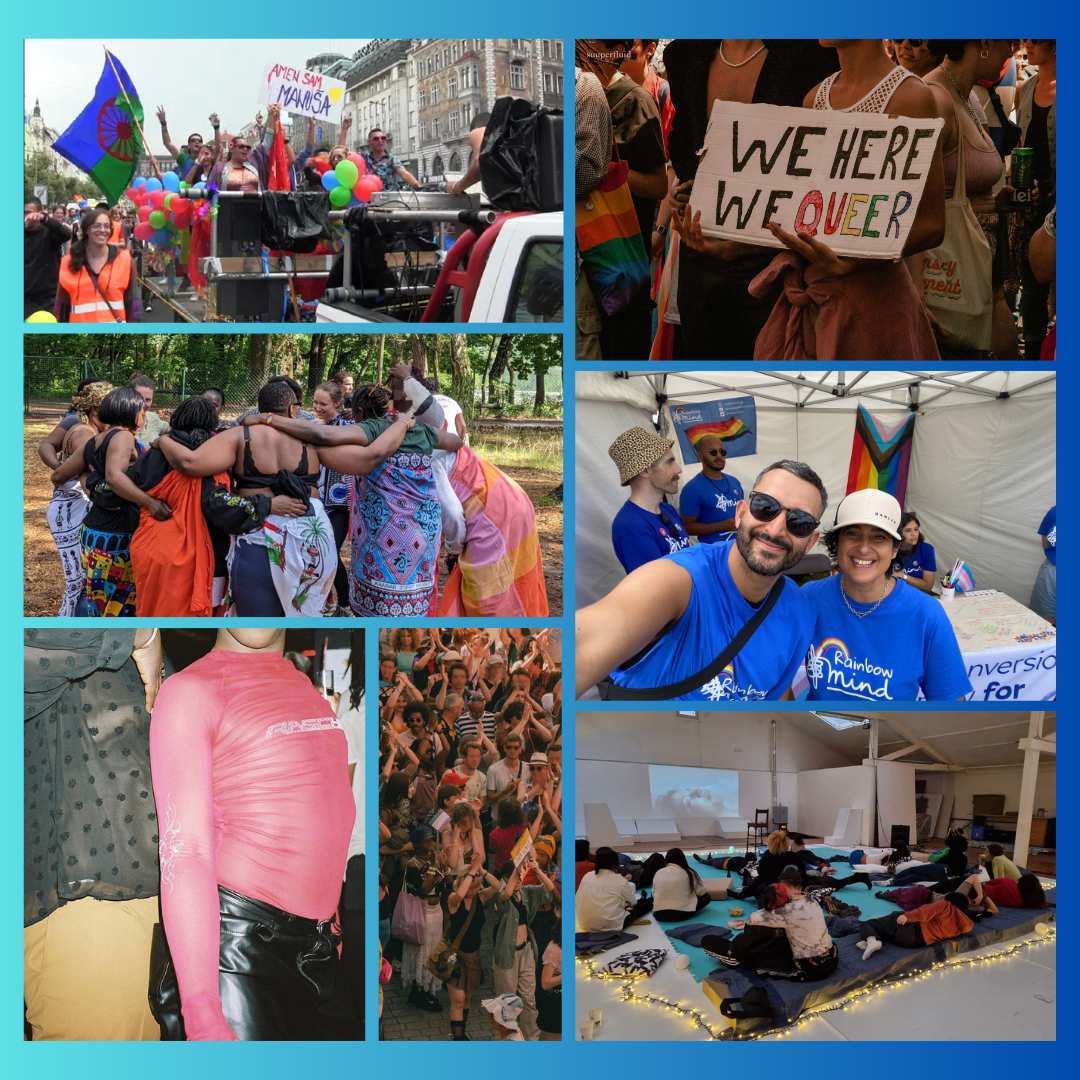
In this blog, marking International Day for the Elimination of Racial Discrimination, seven of our partner organisations share their aspirations, visions, and messages for the wider LGBTI movement
Across Europe and Central Asia, tremendous collective work is needed to undo deeply embedded prejudice, racism, inequities and oppression.
Many groups and collectives, led by and working for racialised LGBTI communities, are putting their knowledge, time, energy and talent to use, day in and day out, in the undoing of prejudice and oppression within our movements and societies.
Here are the visions seven of our partner organisations, run by racialised activists, hold for the movement and the future.
ARA ART – Czechia
“We are working towards future where intersectional equality will be key to everyone feeling respected and supported in their unique identities.”
“In the future LGBTI movement in Europe, it should be a priority to protect and respect particularly vulnerable minorities within the LGBTI movement to ensure that every individual feels safe and supported.”
Break Isolation group/International Women* Space (IWS) – Germany
“We are working towards a future where the freedom of movement, autonomy, emancipation and liberation of racialised queer folk is a right, not a privilege.”
“In the future LGBT movement in Europe, we hope to collaborate, join formidable alliances and create sustainable community care and support systems for racialised LGBT persons in Europe and beyond.”
Fite Qlub – netherlands
“We are working towards a future where people living in the Western world are not subjected to racialisation, homophobia, and transphobia. Our mission is to end systemic oppression, both political and economic, against LGBTQI+ communities that are not conforming with the norms of Western society, and achieve sexual liberation through an intersectional and anti-colonial approach.”
“In the future European LGBTI movement, we need to collaborate with our comrades and allies to create networks of care and solidarity to support each other. The challenges occurring in one country affect others, despite the illegitimate borders drawn by nation-states with a colonial mindset. European policies and institutions often perpetuate the destiny for a white, cis, heteronormative, capitalist system that is an oppressive tool over our communities in Europe.”
Minbar Wien – Austria
“We are working towards a future where people feel more connectedness within the queer community.”
“In this future, the LGBTI movement in Europe will include racialised points of view and needs within the decision-making process and will make a space for cultural diversity within the priorities.”
La Pride des Banlieues – France
“We are working towards future where the most marginalised people will have access to the same rights as everyone.”
“In this future LGBTI movement in Europe, we will strive to make the struggles of racialised and marginalised people more visible and will ensure that they are heard.”
Rainbow Mind – UK
“We are working towards a future where all LGBTQIA people have access to culturally competent mental health services and where all parts of their identity are welcome.”
“For this future LGBTI movement in Europe, we call for mental health support for all LGBTQIA people as a human right. We need a radical approach to health activism to co-produce mental health support tailored by and for racialised LGBTQIA people.”
Rainbow Nation Brussels – Belgium
“We, at Rainbow Nation Brussels, are working towards a future where every Black, brown, and person of colour within the LGBTQIA+ community feels valued, heard, and supported.”
“In this future, let’s commit to deconstructing our biases, unlearning racist behaviours and collectively creating spaces that are truly inclusive, where every member of our community can thrive without fear of marginalisation or injustice.”
ILGA-Europe has the privilege to learn from and work with these groups through our dedicated programme in support of the work done by and for racialised LGBTI communities. We are currently inviting project proposals for the next iteration of this programme, as we continue our commitment to providing funds and support for those in the LGBTI movement who address intersectional impacts of injustice, racialisation, racism and supremacy, affecting the lives of racialised LGBTI communities across Europe.
Intersections: The LGBTI II Survey – Migrant and Racial, Ethnic and Religious Minorities Analysis
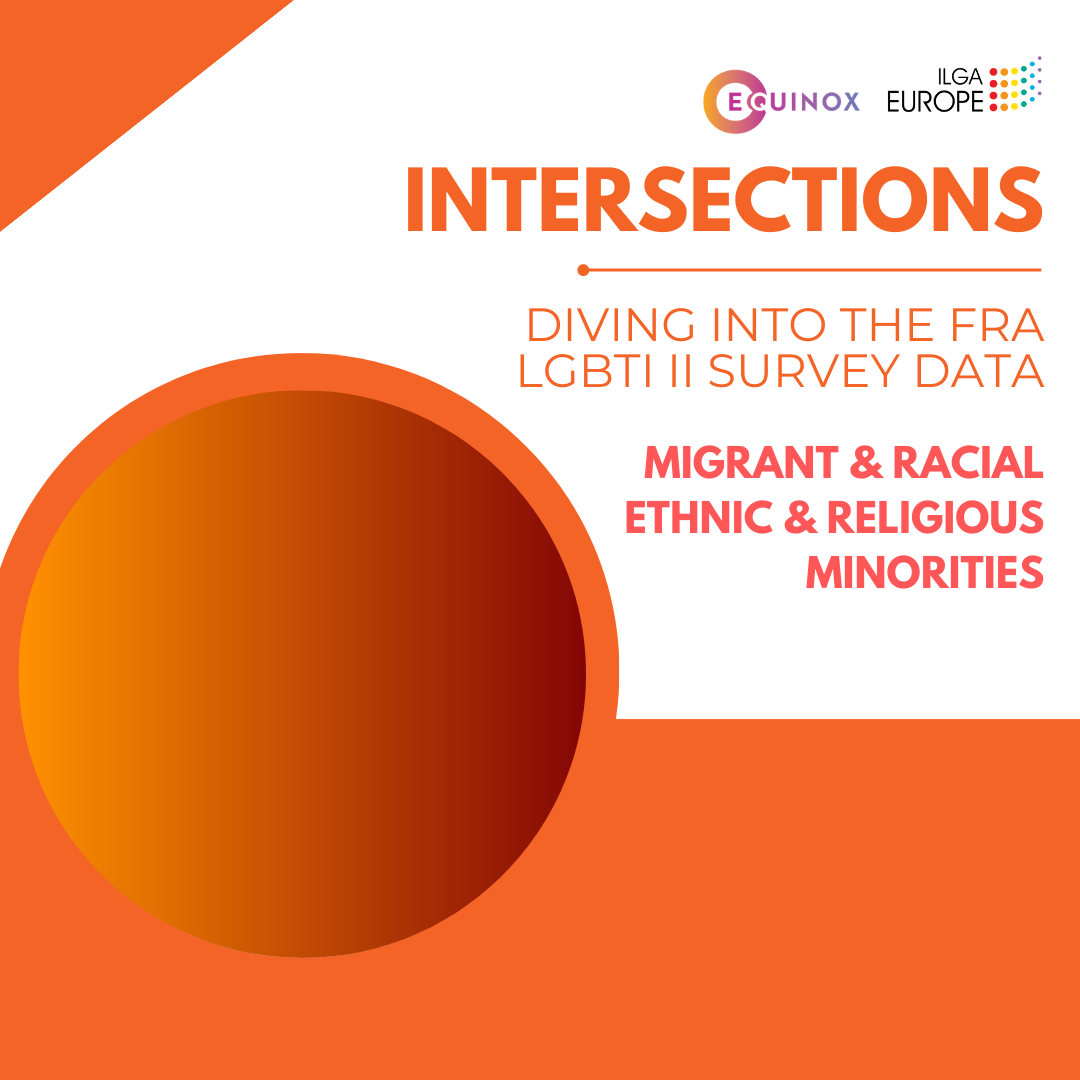
Disaggregated data, which can look deeply into the lived experiences of marginalised people, is a key demand of LGBTI and other human rights groups. With this in mind, over the last year ILGA-Europe have been partnering with a variety of NGOs in the region to analyse the FRA 2019 LGBTI Survey II data and pull out experiences of those experiencing intersectional marginalisation. This work is based on analysis co-commissioned by ILGA-Europe and TGEU.
This briefing seeks to elaborate on existing analysis of the FRA LGBTI Survey II, and summarises the most relevant data about the experiences of LGBTI persons in Europe with a migration background coming from outside of EU, LGBTI non-migrant ethnic minorities and LGBTI religious minorities in the EU.
To understand the challenges faced by LGBTI migrants from outside of the EU and belonging to ethnic or religious minorities, we created sub-populations of respondents, who identified themselves as belonging to these groups, and compared them with all respondents to the survey.
Open Letter to President Ursula von der Leyen: The European Commission must prioritise addressing police violence and structural racism in the EU
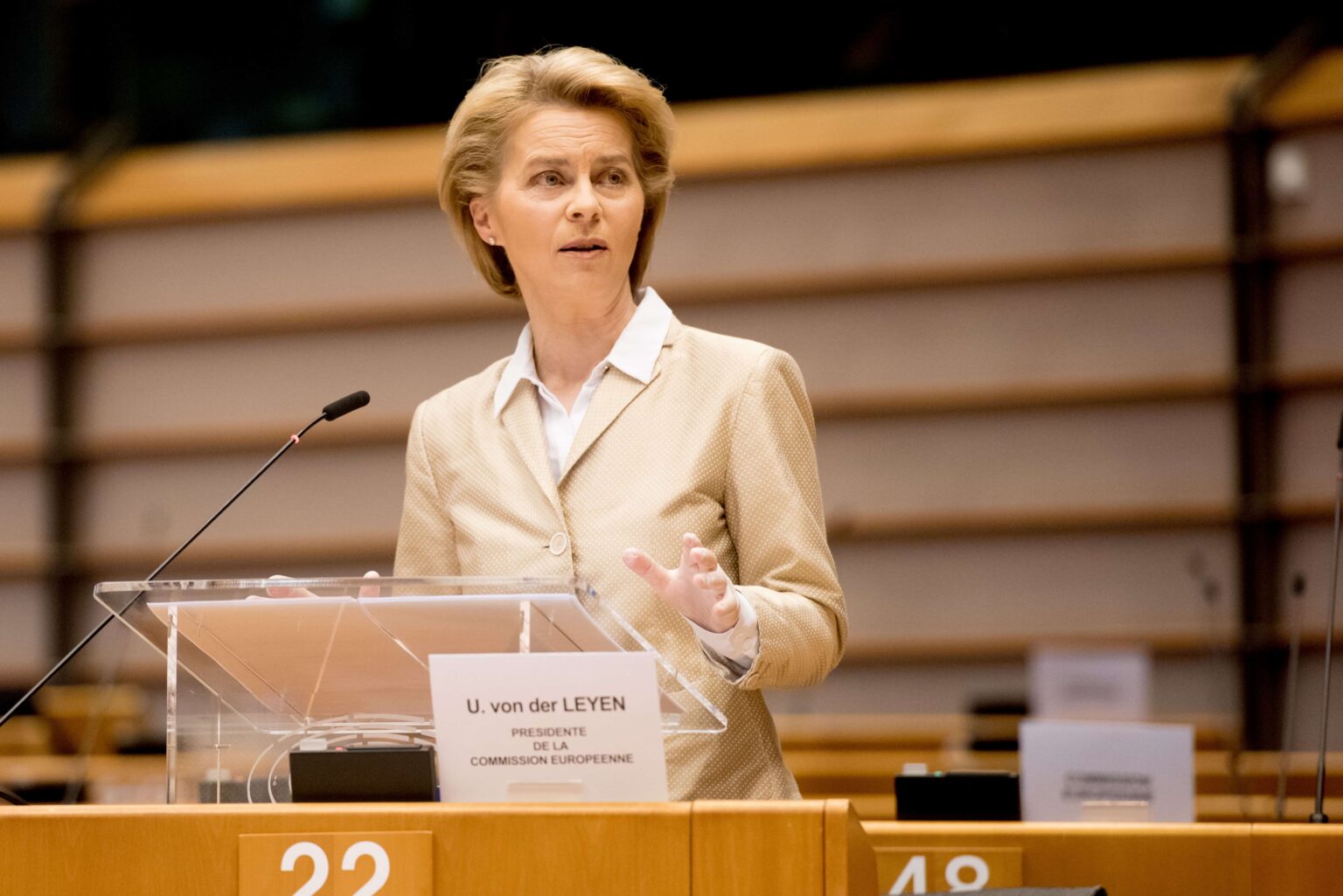
ILGA-Europe, ENAR and 150 organisations across Europe co-signed this open letter to European Commission President Ursula von der Leyen to raise our serious concerns regarding the lack of reaction of EU leaders regarding police brutality against people of colour in Europe as well as institutional and structural racism.
Dear Ms. von der Leyen,
As organisations working for an equal and inclusive Europe, we would like to raise our serious concerns regarding the lack of real reaction of EU leaders regarding police brutality against people of colour in Europe as well as institutional and structural racism, following the killing of George Floyd in the United States and ensuing solidarity protests in Europe and across the world. We were appalled by the statement by EU Commissioner Schinas which delegitimises the public outcry against police brutality and institutional racism in Europe.
On 3 June 2020, Commissioner Schinas was quoted in the Financial Times as saying that events such as the killing of African-American man George Floyd in Minneapolis, and the wave of demonstrations against it, were “not likely?.?.?.?to happen in Europe at this scale”. “I do not think that we have issues now in Europe that blatantly pertain to police brutality or issues of race transcending into our systems. But we do have an issue in Europe, which is the issue of inequalities and income distribution — making the best for everyone of what we have.”
As an EU Commissioner, Mr. Schinas should have shown empathy with the victims of widespread racism in the EU. Instead his reckless statement has denied racialised communities across the EU the recognition of the oppression they are subjected to on a daily basis.
His statement is a blatant denial of the existence of police brutality and discriminatory policing in Europe, despite evidence of this reality, including from EU bodies themselves, such as the EU Fundamental Rights Agency, which found that one quarter of all persons of African descent surveyed were stopped by the police in the five years before the survey, and among these, 41% characterised the most recent stop as racial profiling. In France, young men perceived as black or Arab are 20 times more likely to be controlled by police than others. In the UK, data shows that the proportion of black and ethnic minority deaths in custody as a result of use of force or restraint by the police, is over two times greater than it is in other deaths in custody. Roma people across Europe also experience racial profiling and police violence. This is not a new issue. For decades, ENAR and anti-racist organisations on the ground have been reporting what racialised communities experience at the hands of the police across the European Union: discriminatory stop and search, abuse, violence and even death. So far, however, there has been little visibility and no public response.
EU and member state leaders pointed fingers at the United States for the killing of George Floyd and police brutality, while maintaining a deafening silence on the situation in their own countries, going as far as denying that police violence is an issue in Europe. This lack of reaction reflects a denial of long-standing existence of systems of oppression in European societies, of historical injustices and persistent racial inequalities in areas of housing, healthcare, employment and education, as well as repeated experiences of state violence and impunity.
The bare minimum that EU leaders should do is acknowledge the existence of and publicly condemn discriminatory and violent police practices, in particular when it results in death. But most European political leaders were not even able to do that.
There is an urgent need to ensure fair and effective policing practices for all communities. EU member state governments must adopt measures to combat and prevent racism in law enforcement. This includes severe sanctions in cases of police violence, ensuring fair and independent investigations, prohibiting racial profiling, and increasing racial diversity and trainings within the police force. The EU and its Member States should also collect equality data to make visible where racial profiling, disproportionate use of force and deaths following an interaction with the police are happening. Such data should enable intersectional cross-analysis, for example to identify specific experiences of racialised women.
Twenty years ago, the European Union was at the forefront of the fight against racial discrimination when it adopted landmark laws to prohibit discrimination based on race or ethnic origin. In a time of rising racist violence, persistent discrimination and racial inequality, the European Commission must have a stronger, more public commitment to address police violence and structural racism in Europe.
We would be happy to meet you to discuss our concerns in more detail and propose solutions, and look forward to your response.
Yours sincerely,
Karen Taylor, Chair of the European Network Against Racism
Co-signed by:
1. ABVV-ACOD Cultuur, Belgium
2. ACLI-Vlaanderen vzw, Belgium
3. Aditus Foundation, Malta
4. Africa Solidarity Centre, Ireland
5. African and Caribbean Diversity, United Kingdom
6. African Media Association, Malta
7. AGE Platform Europe
8. AIF+ – Actieve Interculturele Federatie vzw, Belgium
9. AKAZ – Kazumba Association, Portugal
10. Alliance Citoyenne, France
11. Altera, Italy
12. Andalucía Acoge, Spain
13. ANTIGONE – Information and Documentation Centre on Racism, Ecology, Peace and Non-Violence, Greece
14. Anti-Racist Forum, Finland
15. Apna Haq, United Kingdom
16. Arciragazzi Portici, Italy
17. ASKV Refugee Support, Netherlands
18. Asociación Musulmana por los Derechos Humanos (AMDEH), Spain
19. Asociacion Nacional Presencia Gitana, Spain
20. Asociación Rumiñahui, Spain
21. Association of African Students in Europe (AASE)
22. ASTI asbl – Associations de soutien aux travailleurs immigrés, Luxembourg
23. Ba Omar, Ecowasflanders, Belgium
24. Balbriggan Integration Forum, Ireland
25. BAMKO-CRAN asbl, Belgium
26. Ban Ying Koordinations- und Beratungsstelle gegen Menschenhandel e.V., Germany
27. BePax, Belgium
28. Café Congo, Belgium
29. CCME, the Churches´ Commission for Migrants in Europe
30. CEJI-A Jewish Contribution to an Inclusive Europe
31. Center for Equality Advancement, Lithuania
32. Center for Intersectional Justice, Germany
33. Center for Migration, Gender and Justice, Germany
34. Central Council of German Sinti and Roma, Germany
35. Centre de Médiation des Gens du Voyage et des Roms, Belgium
36. Centre for Peace Studies, Croatia
37. Centre Régional de Verviers pour l’Intégration, Belgium
38. Centre Régional d’Intégration de Charleroi, Belgium
39. Collectif Contre l’Islamophobie en Belgique (CCIB), Belgium
40. Collectif Contre l’Islamophobie en France (CCIF), France
41. Collectif féministe Kahina, Belgium
42. Collectif Mémoire Coloniale, Belgium
43. Confédération des Syndicats Chrétiens (CSC), Belgium
44. Conseil Représentatif des Associations Noires (CRAN), France
45. Counsellor Sanchia Alasia, London Borough of Barking and Dagenham, United Kingdom
46. Discrimination Law Association, United Kingdom
47. Dokumentations- und Beratungsstelle Islamfeindlichkeit & antimuslimischer Rassismus, Austria
48. Each One Teach One e.V. (EOTO), Germany
49. Een Andere Joodse Stem (EAJS), Belgium
50. ELLA vzw, Belgium
51. EMCEMO, Netherlands
52. ENAR Belgium
53. Equal Opportunities Initiative Association, Bulgaria
54. European Council for Refugees and Exiles (ECRE)
55. European Forum of Muslim Women (EFOMW)
56. European Network of Women of African Descent (ENWAD)
57. European Network On Religion and Belief
58. European Roma Grassroots Organisations Network
59. European Roma Information Office (ERIO)
60. European Roma Rights Centre
61. European Women’s Lobby
62. Federation of Roma Associations in Catalonia – FAGiC, Spain
63. FMV vzw, Belgium
64. Forum of European Muslim Youth and Student Organisations (FEMYSO)
65. Foundation for Shelter and Support to Migrants, Malta
66. Fundación Al Fanar para el Conocimiento Árabe, Spain
67. Furia, Belgium
68. Generation 2.0 RED, Greece
69. Greek Forum of Migrants, Greece
70. Grupo EducAR – Anti Racist Education, Portugal
71. Hand in Hand tegen racisme, Belgium
72. Hart Boven Hard, Belgium
73. Help Refugees, United Kingdom
74. Human Rights League (Liga za ?udské práva), Slovakia
75. IDB Initiative für ein diskriminierungsfreies Bildungswesen, Austria
76. Il Razzismo è una brutta storia, Italy
77. ILGA-Europe
78. In IUSTITIA, Czech Republic
79. Inequalities Research Network, University of Leeds, United Kingdom
80. InMenteItaca, Italy
81. Instituto de Asuntos Culturales – IACE, Spain
82. Integratipact vzw, Belgium
83. Integro Association, Bulgaria
84. Intercultural Dialogue Platform, Belgium
85. Irish Network Against Racism, Ireland
86. Jesuit Refugee Service Europe
87. Jesuit Refugee Service Malta
88. Job@Ubuntu, Belgium
89. Kaneza Karen, former ENAR board member, Belgium
90. KARAMAH EU
91. Killion Munyama, Polish MP
92. King Brenda, ACDiversity, United Kingdom
93. KISA – Action for equality, support, anti-racism, Cyprus
94. Kopin – Koperazzjoni Internazzjonali, Malta
95. Kreativ Research Association-Center for Media Studies and Social Research, Romania
96. La Voix des Rroms, France
97. Lallab, France
98. Le Monde des Possibles, Belgium
99. Ligue des droits humains, Belgium
100. Malta Emigrants’ Commission, Malta
101. Merhaba, Belgium
102. Migrant Tales, Finland
103. Migrant Women Association, Malta
104. Minderhedenforum, Belgium
105. MOC, Belgium
106. Movimento di Cooperazione Educativa di Torino, Italy
107. MRAX ASBL, Mouvement contre le Racisme, l’Antisémitisme et la Xénophobie, Belgium
108. Muslim Association of Greece, Greece
109. Mwinda Kitoko vzw, Belgium
110. Netzwerk Rassismus und Diskriminierungsfreies Bayern e.V., Germany
111. Nevo Parudimos Association, Romania
112. NiLi, Network Italiano dei Leader per l’Inclusione, Italy
113. Objectif, mouvement pour l’égalité des droits asbl, Belgium
114. ORBIT vzw, Belgium
115. Pan-African Movement for Justice, Sweden
116. Platform for International Cooperation on Undocumented Migrants (PICUM)
117. Por Ti Mujer, Spain
118. Quaker Council for European Affairs
119. Queer Base – Welcome & Support for LGBTIQ Refugees, Austria
120. Rainbowhouse Brussels, Belgium
121. Red Acoge, Spain
122. Red Española de Inmigración y Ayuda al Refugiado, Spain
123. Refugee Rights Europe
124. Reghif Mouhad, Bruxelles Panthères, Belgium
125. Regional Roma Educational Youth Association – RROMA, North Macedonia
126. Rete21marzo, Italy
127. REVIBRA Europe – European Support Network to Brazilian women in Europe
128. Roma Active Albania
129. Roma Community Centre, Lithuania
130. Roma Education Fund
131. Roma Entrepreneurship Development Initiative REDI
132. Roots vzw, Belgium
133. Samenlevingsopbouw, Belgium
134. SEER vzw, Belgium
135. SHARE Forum, Belgium
136. Siempre-Making Latin Women Visible, Belgium
137. Slovo 21, Czech Republic
138. SolidarityNow, Greece
139. SOS Malta, Malta
140. Stichting OCAN, Netherlands
141. Stichting voor mensen zonder verblijfsvergunning – STIL Utrecht, Netherlands
142. Tayush, Belgium
143. Uganda Association of Ireland, Ireland
144. UNESCO Inclusive Policy Lab – People of of African Descent and the SDGs e-team
145. Union des Progressistes Juifs de Belgique (UPJB), Belgium
146. Vaiya Alfiaz, former coordinator of the EP Anti-Racism and Diversity Intergroup
147. Victoria Deluxe vzw, Belgium
148. Vie Féminine, Belgium
149. Voice of Roma, Ashkali and Egyptians, Kosovo
150. Waterford Integration Services, Ireland
151. WoW e.V., Germany
152. CeRAIC, Belgium